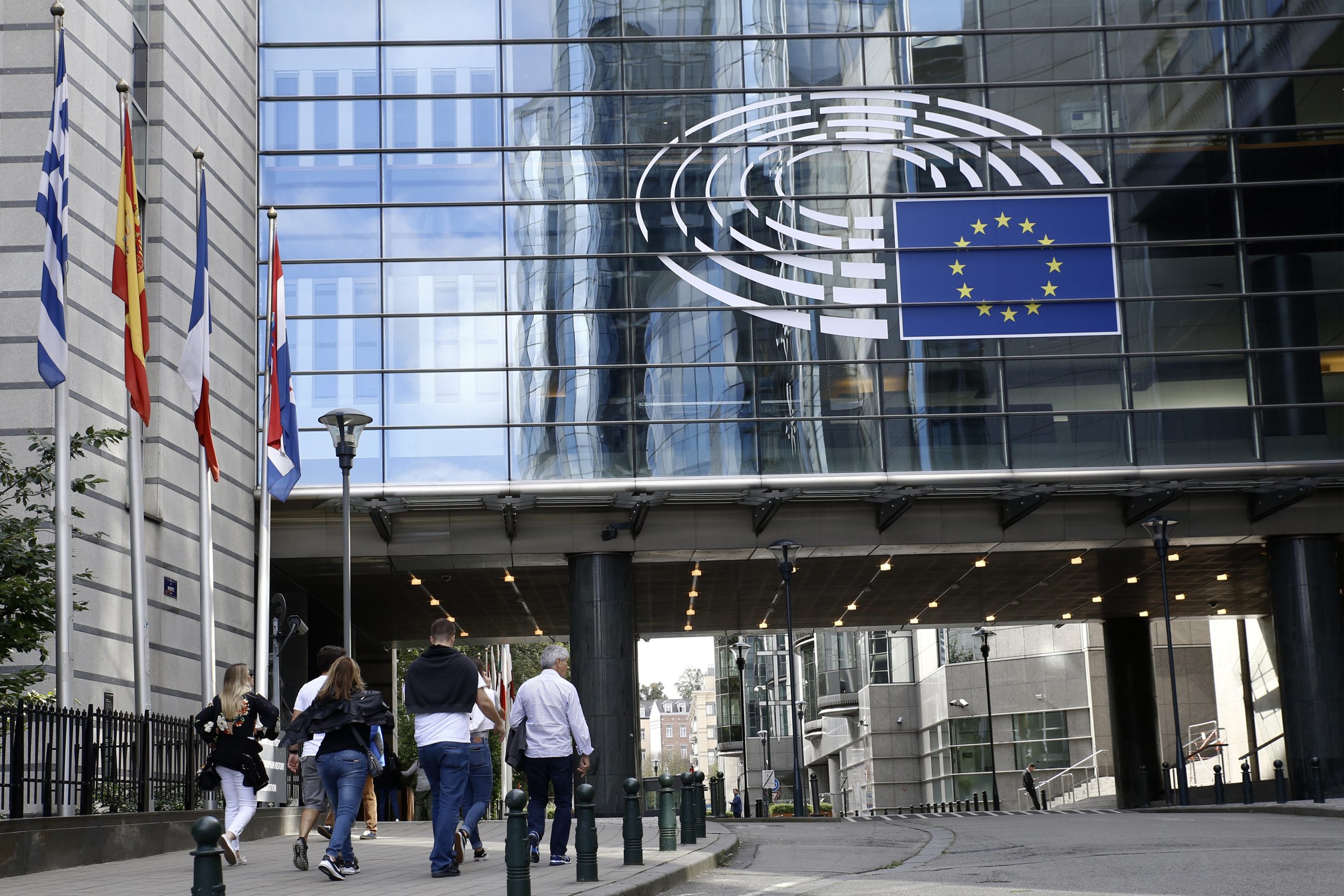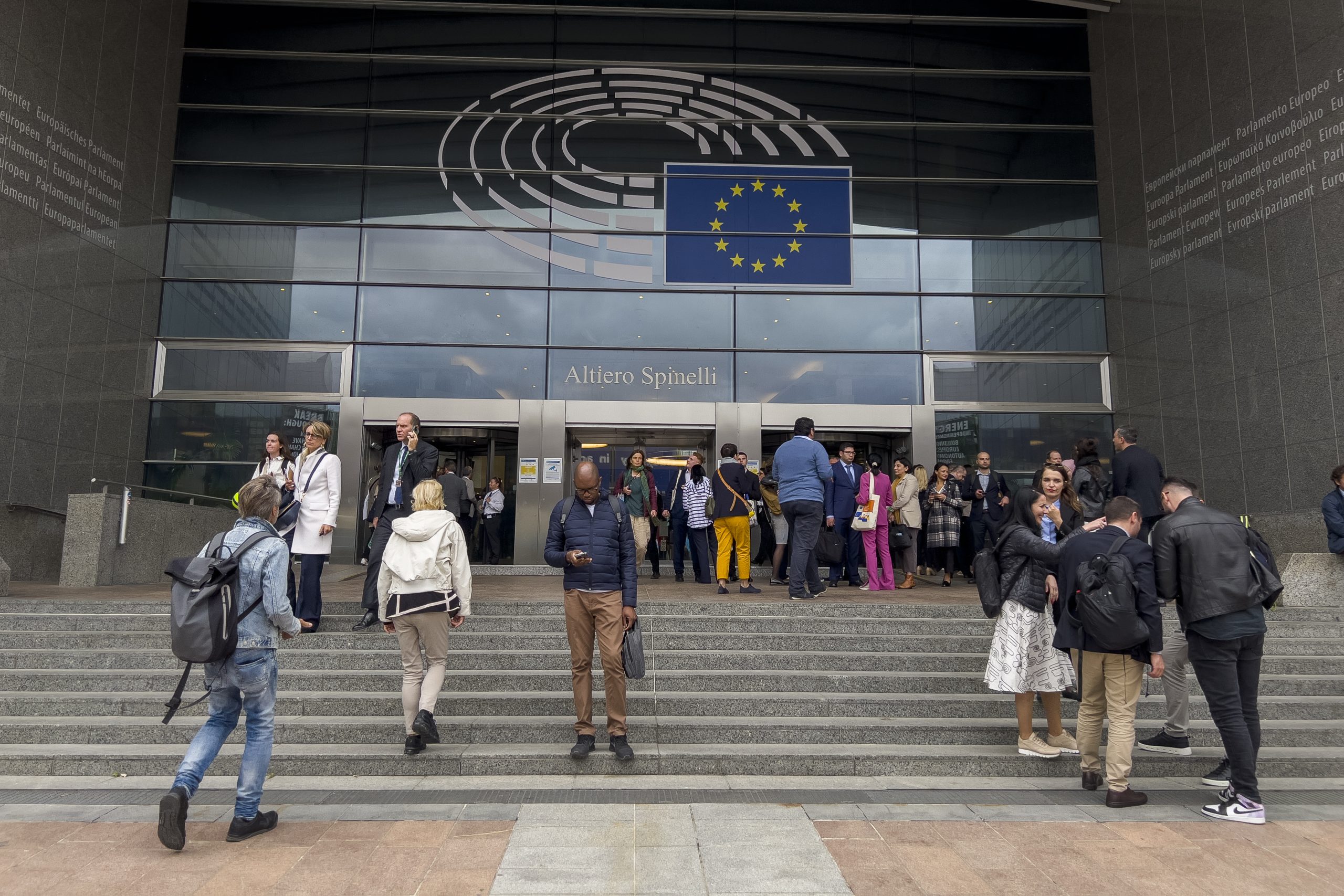Dalma MEDVEGY: An Identity Formed by Crises. When Is It Time for the Revision of EU Treaties?
In recent years, both the world and the European Union have had to face numerous challenges. However, the Founding Treaties which form the basis of the Union have not been reformed in the past 14 years. The last amendment of the Treaties took place with the Lisbon Treaty, which came into force in 2009, leaving treaty reform off the table in the last fourteen years. Nevertheless, in recent times, some leaders of the EU have raised their voices for the revision of the EU Treaties. Now, the question arises whether the Union had the necessary competences to overcome the crises, and if not, whether it is justified to amend the Treaties and confer further competences from the Member States towards the European Union in order to have a broader scope of competence when the Union has to face challenges and overcome them. However, it must also be taken into account that these newly transferred competences would not only be exercised by the Union during times of crises but also in everyday matters, which are unrelated to the previous challenges that initiated the modification of the Treaties.
European Commission President Ursula von der Leyen expressed her support for a constitutional convention to reform the EU Treaties during her State of the Union speech in 2022. We could say that there is nothing new under the sun, as the failed predecessor of the Lisbon Treaty (the so-called Constitutional Treaty) was drafted by a similar Convention.
In her present speech, President Leyen highlighted the need to take EU reform seriously and proposed the convening of a European Convention in order to achieve genuine renewal of the Union. The European Convention would represent the initial step in a treaty amendment process, although there is no consensus among the Member States regarding its necessity.
Firstly, let us assess the crises that the Union has had to face in recent years in order to examine which areas of competence were impacted by each challenge and whether the Union was able to effectively address the situation with its competences. Since 2009, the EU was managing one challenge after another, such as the massive refugee influx, global warming, the COVID-19 pandemic, and the Russia-Ukraine war.
One of the above-mentioned crises, the COVID-19 pandemic has deeply impacted the lives of every citizen, necessitating a unified and prompt response for its swift and effective containment. However, Article 5 of the Treaty on European Union (TEU) states, “Under the principle of conferral, the Union shall act only within the limits of the competences conferred upon it by the Member States in the Treaties to attain the objectives set out therein. Competences not conferred upon the Union in the Treaties remain with the Member States.” The issue in this situation arose from the fact that the Union has only a supporting competence in the field of healthcare, which means that any decision made by the EU serves solely to support the national policies established in the Member States, rather than replacing them. It is set out in Article 6 (a) of the Treaty on the Functioning of the European Union (TFEU). Although Article 168 TFEU allows this competence to be extended to a shared competence in the name of “a high level of human health protection”. The COVID-19 pandemic has raised several questions in EU law concerning the field of healthcare. The right to free movement is one of the four pillars of the single market. Restricting this right is subject to conditions related to public policy, public security, or public health. The pandemic falls under the latter category. Therefore, the Union exercised competence in this area during this time. Still, the Union did not have unlimited competence; for example, the regulation concerning the Digital Green Passport had to comply with the requirements of necessity and proportionality, as well as non-discrimination. In this case, it can be demonstrated that, in order to ensure a fundamental EU right, the Union exercised competence in areas that affect healthcare, which originally should be just supported by EU regulations. The overlapping of EU and Member State competences, however, can pose challenges in such cases.
Within the supporting competence category, it is difficult to ascertain whether the Union fulfilled the task of handling the situation adequately or not. As a result, the Union conducted a survey following the decline of the pandemic, in which people were asked about their satisfaction with the management of the COVID-19 crisis. The survey revealed that only 42% of those who were aware of the EU’s actions expressed satisfaction. Furthermore, 69% of respondents stated that they wished the Union had played a stronger role in fighting against the pandemic and had more powers to implement necessary measures. Even former German Chancellor Angela Merkel said she believed that the EU is in need of more competences in the area of health, which can be achieved through treaty amendment.
Another crisis that emerged was the migration flow into Europe. The Arab Spring began over 10 years ago, resulting in a significant number of refugees arriving within the Union’s borders.
The legal basis for addressing this challenge can be found in Article 79 (1) of the TFEU, which states “The Union shall develop a common immigration policy aimed at ensuring, at all stages, the efficient management of migration flows, fair treatment of third-country nationals residing legally in Member States, and the prevention of, and enhanced measures to combat, illegal immigration and trafficking in human beings”.
However, several factors contributed to the complexity of this issue. Firstly, in this area, Member States consider the refugee’s security and employment issues as aspects of integration. If these areas of national competence are involved, then the Union’s actions also have an impact on them, where national policies and competences come to the forefront. Therefore, we cannot speak of a fully conferred competence in this case, where the Union cannot have competence over any issue. If it concerns an area related to integration, the Union must respect national competences as well. Secondly, Article 4 (2) of the TFEU lists the areas where competence is shared between the Union and the Member States. Point (j) in this paragraph specifically mentions the area of freedom, security, and justice. It is undeniable that the Union’s competence regarding migration issues falls within this category. Therefore, the competence of the Union on issues related to migration flows is a harmonizing competence. On the other hand, the ‘other 4(2)’, namely that of the TEU, sets forth that the EU should respect essential state functions, especially national security. Given this provision, in areas, where e.g. migration and national security overlap, there is an inherent insecurity about whether this is indeed a harmonizing competence (a conferred power based on Article 5 TEU) or not, and something that falls within the purview of Article 4(2) TEU, therefore left undisturbed by the integration (respected by the EU).
The Institutions of the EU can establish, however, minimum common rules through directives, which Member States are obligated to implement. On the other hand, the Member States have the authority to enact legislation on matters not addressed by the directives and may deviate from the common rules to the extent permitted by the directives. This is especially true in areas falling under the scope of Article 4(2) TEU.
Article 79 (2) TFEU lists the areas in which the European Parliament and the Council can adopt measures in ordinary legislative procedure regarding questions of migration, such as the conditions of entry and residence or the combating of trafficking in persons. The question arises whether this is sufficient to address future situations, including the influx of refugees resulting from the Russian-Ukrainian war. So far, the EU introduced the system of temporary protection with the aim of alleviating the pressure on national asylum systems and enabling individuals who are forced to leave their place of residence to have harmonized rights throughout the Union. Among these rights are for example the right of residence and the right to access medical care. Further actions in the future can question whether the EU has enough competence in this area to effectively tackle such crises, as more than 4 million Ukrainian refugees have already been granted temporary protection in the EU, although we have to account for more than 8 million refugees throughout Europe, according to the United Nations data.
Despite all of this, it remains uncertain whether the Member States and their citizens recognize the need for reforming the EU Treaties based on the experience of the last few years. Based on the survey conducted by Eurobarometer, which relied on data collected in the autumn of 2020 and was published in the spring of 2021, it is revealed that approximately two-thirds of Europeans believe that their country’s EU membership is a good thing and they also support the idea of the European Union having more competences in dealing with crises such as the above-mentioned areas.
Furthermore, an extensive agenda for the revision the EU treaties has its risks. Indeed, ideological differences can be identified between those who advocate for the preservation of (or increased emphasis on) national sovereignty as the foundation of the integration (with its inherent limits) and the proponents of a strongly centralized and unified, federal Europe.
At the Conference on the Future of Europe, the need for the revision of Treaties emerged as a result of the proposals put forward. In response to this, the governments of 13 Member States published a letter expressing their opposing views on the need for treaty amendments. They explained that there is no rush for changes as the Union has already responded and taken appropriate measures to address the crises. Among these countries were Bulgaria, Czech Republic, Denmark, Estonia, Finland and Latvia. Contrary to this, 6 Member States, such as Belgium, Germany, and Italy, responded by stating their openness to required treaty amendments.
In the future, the European Union is likely to face numerous new further crises that were not foreseen during the formulation of the Lisbon Treaty. One thing is certain: there is a need to ‘adapt and survive’. It is significant for the Union to find the most effective way to address crises (which will in turn form and shape its identity), whether through the revision of the Treaties or within the existing legal framework by adopting new policies or adjusting existing ones. The key is to decide on what identity is most desirable for the EU.
Dalma Medvegy is a fourth year undergraduate law student at the University of Szeged, Hungary, Faculty of Law and Political Sciences, holding a talent scholarship from the Aurum Foundation. She is Vice President in charge of Academic Activities at ELSA Szeged in the academic year of 2022/2023, Member of the International and EU Environmental Law Research Group at the University of Szeged, Faculty of Law and Political Sciences. Her research focuses on the revision of EU treaties and the future of Europe.








